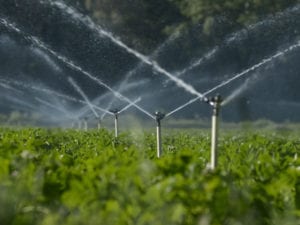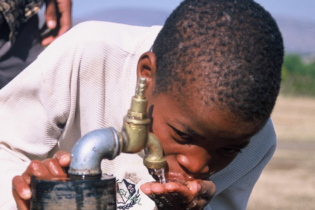Wastewater reuse presents a sustainable solution to support food security amid looming water shortages, but the cost of the necessary infrastructure means it is not being widely adopted in South Africa.
However, manufacturing plants, particularly local branches of international food and beverage producers, are increasingly investing in treatment facilities enabling them to reuse their own wastewater and achieve zero liquid discharge status. This is according to Hennie Pretorius, Industry Manager Water and Wastewater at Endress+Hauser South Africa, who will participate in IFAT Africa next year. Endress+Hauser, recently named by Frost & Sullivan as 2020 Global Company of the Year in the global liquid analyser market, is seeing growing adoption of wastewater treatment and analysis solutions in the South African private sector. This contributes to food security by eliminating megalitres of waste in food processing, he says. However, the reuse of treated wastewater in agriculture has some way to go. “In South Africa, treated wastewater is not being used directly for agriculture at scale,” he says. “The reasons for this include the costs of infrastructure to pipe treated wastewater to remote farms, and the fact that many of the country’s wastewater treatment plants are not operating optimally. Inadequately treated wastewater used for agriculture could pose a risk to crops, farmworkers and groundwater.” However, with megalitres of water wasted daily, more efficient wastewater use will become increasingly important in closing the gap between water supply and demand – expected to top 17% by 2030.“Currently, most of the country’s water demand is met from surface water resources, but this approach is not sustainable. The Minister of Human Settlements, Water and Sanitation, Min Lindiwe Sisulu and her team appears to have the political will to change the water environment, but we will have to move faster towards more sustainable approaches to water and wastewater use,” he says.
Addressing food waste to reduce water demand in manufacturing Prof Linda Godfrey, Manager: Waste RDI Roadmap Implementation Unit, DSI and Principal Scientist: Waste and Circular Economy at the CSIR, notes that better utilisation of resources in production and manufacturing would go a long way to addressing food security in a sustainable way. “Addressing the food waste problem would impact on resources such as water and energy needed to produce food,” she says. With around a third of edible food produced either lost or wasted each year, a great deal of work is now being done to address the issue, in support of the Sustainable Development Goals: the Department of Environment, Forestry and Fisheries, in partnership with the CSIR, have developed “Consumer food waste prevention and management guidelines” aimed at preventing avoidable food waste, and minimizing and properly managing unavoidable food waste in South Africa. The Consumer Goods Council of South Africa is collaborating with the EU and the South African Government to establish a food loss and waste voluntary agreement, Prof Godfrey says. The agreement on reducing food waste and loss is expected to be signed later this year at the annual CGCSA summit, and is intended to mark the beginning of initiatives to ensure that surplus food which is still safe for human consumption can be donated to needy families in South Africa where an estimated 13 million people go to bed hungry every night.






